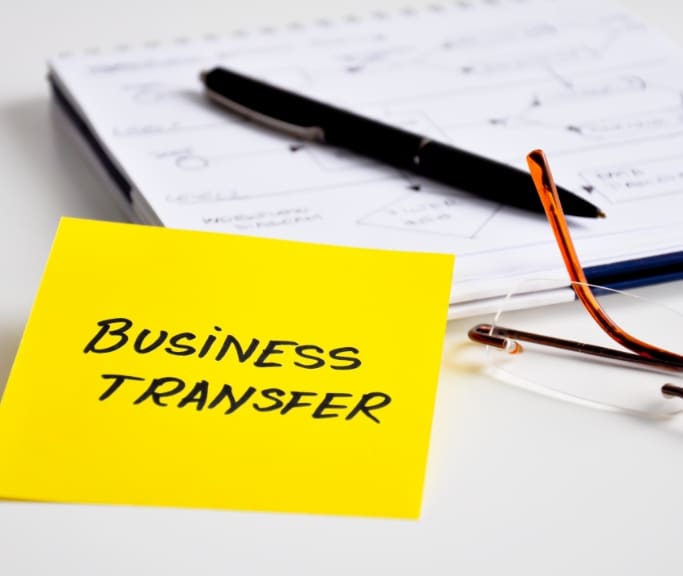Business Purchase and Sale
Whether you are buying a business or plan to sell an existing business, guidance and expert advice from our team of solicitors can improve your position.
From examination of initial contracts to settlement, we help our clients capitalise on opportunities and navigate risk.

Quick links
Examine, advise, negotiate and execute
Legal and government requirements exist throughout the process and range in complexity. With a solicitor by your side your best interests stay in focus. You gain clarity surrounding your current position, your desired position and the best strategy to achieve your goals. Most importantly you avoid pitfalls and costly delays.
The right solicitor understands each sale and purchase is different, similarities exist but no two businesses are alike. Maintaining focus on your priorities throughout the process ensures optimal results are achieved.
Business Value
How do brand equity, goodwill, reputation and intellectual property affect the value of a business? Unlike simple business value calculations, there isn’t a clear answer. The most common one is ‘it depends.’ An experienced solicitor will be able to provide you with a balanced business appraisal. This will be based on tangible assets such as equipment, plant and machinery. Goodwill, brand equity and intellectual property will also be considered.


Inclusion and Exclusions
Clearly defining what is included and excluded will help value the business. Expert advice allows you to consider the implications of each. Ask the following questions:
- Is the business being sold with all assets?
- Are there assets that aren’t related to the business?
- Are there any assets that are to be excluded?
- Will the registered business name be included?
Method of sale
Your solicitor will help determine the most appropriate method for the sale or purchase of your business based on specific circumstances.
Sometimes the desire to save on GST or Stamp Duty can distract from the bigger picture, and long term benefits may be given up for short term savings. Aim to assess it from a ‘what is best?’ perspective as opposed to ‘how much can I save?’


Selling or buying a Going Concern
If the business is to be sold with everything required for the buyer to continue normal operation (eg; exclusions do not impact the normal operation of the business) the business will be sold as a ‘going concern’ and savings in GST/Stamp Duty are present. Your solicitor will confirm conditions have been met along with:
- All items necessary for the continued operation of the business
- The business continues until day of sale
- The buyer is registered for GST
- The agreement was made in writing
Sale of Business Agreement
The Sale of Business Agreement will outline all the details relating to the transaction:
- Business structure
- Physical address/es
- Names of Selling and Buying parties
- Purchase price and payment terms
- Inclusions of assets
- Inventory, staffing, equipment
- Leases and liabilities
- Warranties, liabilities and non-competition clauses
- Indemnities
Solutions law can provide you with a ‘term sheet’ to streamline engaging in conversations with potential buyers. A term sheet can be considered a pre-Sale of Business Agreement ‘checklist’. It sets out the terms and conditions for the sale. You will save time by having a general outline of the terms and conditions for the sale.
Negotiation
There is no denying that each party always wants to achieve optimal results out of the transaction, the sale price is one element that helps determine your end result.
Despite being a business transaction, it pays to expect emotions on both sides.
Your solicitor can assist with negotiations and offer support as an expert sounding board during the negotiations to save time and reduce stress.


Managing employees
When a business is sold, the employee’s position with the existing owner ends. Employees must be provided with formal notice. Whether the employees cease employment with the business or transfer to the new owner, they are required to receive official notice in writing.
Under all circumstances, providing your employees with as much information about the process as early as possible can be the key to ensuring a favourable transition. Consider preparing your employee contracts and awards before settlement to keep disruptions to business a minimum.
Legal obligations
Even the simplest businesses will encounter contracts and agreements outlining legal obligations at some point. From the acquisition of assets to new business opportunities your contractual obligations will come in the form of:
- Hire purchase/lease agreements
- Supplier, distributor and client contracts
- Intellectual property licenses
- Employment contracts
Careful consideration of all implications that can arise will allow you to pre-empt and avoid complications instead of being caught off-guard.


Transfer of Business
Responsibility of any agreements will remain with the vendor until the transfer is complete. Certain transfers may take longer than others, being prepared avoids delays.
Remember to include items like marketing assets, domain names as well as business administration records.
De-registration will need to completed with the ATO along with cancellations of ABN.
Again, your solicitor will keep track of the to-do-list so you’re not left carrying the load alone.
Enquire with Anthony today:
Anthony Buda
LAWYER - PARTNER ADMITTED 2004
Anthony has a passion for all matters relating to business and commercial law. His approach is direct, practical and focused on achieving commercially favourable results for all his clients.
He often assists landlords and tenants in structuring, examining and negotiating leases and commercial agreements to reduce expenses where possible. Anthony’s experience stretches from simple standalone commercial properties to shopping centres and industrial areas.